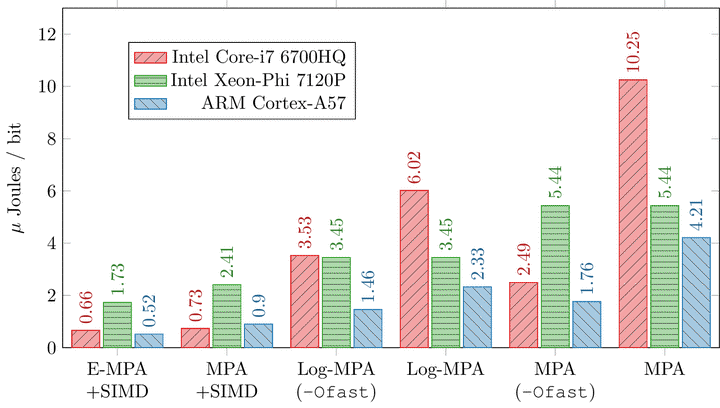
Abstract
The recent evolution of mobile communication systems toward a 5G network is associated with the search for new types of non-orthogonal modulations such as Sparse Code Multiple Access (SCMA). Such modulations are proposed in response to demands for increasing the number of connected users. SCMA is a non-orthogonal multiple access technique that offers improved Bit Error Rate (BER) performance and higher spectral efficiency than other comparable techniques, but these improvements come at the cost of complex decoders. There are many challenges in designing near-optimum high throughput SCMA decoders. This paper explores means to enhance the performance of SCMA decoders. To achieve this goal, various improvements to the MPA algorithms are proposed. They notably aim at adapting SCMA decoding to the Single Instruction Multiple Data (SIMD) paradigm. An approximate modeling of noise is performed to reduce the complexity of floating-point calculations. The effects of Forward Error Corrections (FEC) such as polar, turbo and LDPC codes, as well as different ways of accessing memory and improving power efficiency of modified MPAs are investigated. The results show that the throughput of a SCMA decoder can be increased by 3.1 to 21 times when compared to the original MPA on different computing platforms using the suggested improvements.